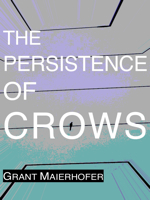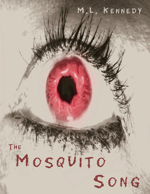by Al Billings
From Africa, from Cuba, and the edge of the Antilles, the ocean churns forward, toward Texas. With a roar, the Gulf of Mexico heaves itself against the soft, crumbling shoulder of the coastline. From Corpus Christi to Baton Rouge, to Panama City, the sea’s contents tumble ashore. Deck hatches and rotten redfish twist and eddy against grating rocks. The Portuguese Man-of-War broils in the noon sun, and the starfish nods to heavenly sisters.
If I were an astronaut orbiting above, I might feel the urge to trace a finger along the gulf’s inner edge, where the Rio Grande ends in a shallow trickle. At night, lit by a dull lunar glow, the dark emerald water and sifting sands bleed together like the edge of a quarter moon. Along the coast, fickle breezes flutter with promise, then disappear behind the sand dunes like out-gunned Bedouins. Egrets hunch on rotted pilings, and the stagnant resacas bubble with sulfites and snapping turtles. Johnson grass clots the edges of the coastal landscape. In the late summer, hurricanes rumble through the gulf and head straight inland, seeking vengeance and release.
The approaching storm swallowed the stars. I sat in front of my motel room in a folding lawn chair after calling friends in the next town. They were safe enough, drinking beers, watching the sky. Gusts of wind unfurled themselves, announcing the arrival of the massive hurricane. My cat, Esperanza, paced the floor and moaned softly, rigid with fear. I drank and waited. Fireflies twinkled against the rustling mesquite, and the last crop-duster skulked home with a low, bloated throb.
A hurricane owns the land it threatens. It drifts closer, and we are caught in the sticky grip of its undisclosed path. It doesn’t matter what we name it because like a feral cat, it won’t respond if we call to it. Terrified families toss clothes and birth certificates into open car trunks. Grim-faced men hammer plywood against window sashes. Cops waggle flashlights at snaking lines of outbound traffic. We draw the curtains closed, and light candles. Stunned by the sudden change in our daily lives, we lose control of the hour and the day.
Beyond our limited sight, the Brujo snuffs his incense and flits away to the mountain peak. The sacred eagle hunkers in cool cave darkness. The flesh trade halts; pimps in Cuidad Acuna shift their human cargo west to safety, a thick perfumed parade of garter belts, fat thighs and hollow, blinking stares. With a child flung across his straining back, the ranchero wades the river, as if the storm might be less potent here or houses and barns will not fly to pieces in the first wet blast. The Rio Grande is no border, no protection, no guarantee; just a smudged pencil line on a yellowed map.
“A huge Hurricane is headed straight towards us.”
“Really? It took you long enough to call. When are you coming back to California?”
“I don’t know.”
“You belong here with me and the kids.”
“I don’t belong anywhere right now except where I am. Besides, it’s beautiful here. There are wildcats and ocelots. Down in Brownsville, some of the old houses are built on stilts. Mexican women in bright dresses sweep the porches. There are banana trees. It’s like living at the edge of a jungle, the edge of the world.”
“I don’t care; you should come back here. You’re just running away from us. Are you drunk?”
“No. Well, a little bit.”
“The girls ask about you.”
“Tell them I love them.”
“Your friends keep calling, looking for you.”
“I’ll write to them sometime. I was in Mexico last night, in Reynosa, in Boys’ Town. There are very beautiful young whores there, slender Indian women from Yucatan. They’re tiny, and they walk like they’re carrying jars of water on their heads. I drank with them, and gave one of them my phone number.”
“That place sounds like a hell hole. You’ll disappear, and they’ll find your bones in the desert someday.”
“I hope so. I had a dream about you; we were in bed.”
“I never liked what you wanted me to do; I just did it for you.”
“Never?”
“I don’t know what I think. We should have had normal sex, and lived a normal life.”
“We’re not normal people.”
The hurricane began to scream overhead. I sat on an old wooden chair on the lee side of a nightclub next to my motel room, the safest building around. I sipped an enormous whiskey sour out of a stainless steel blender jar. Rain slanted and howled against every surface. Groaning with fury, the storm knotted itself into a fist, and smashed doors, roofs and windows. The warm, sticky air clung like wet Saran wrap. Water pounded the roof, flooded the nearby cane fields, and overflowed the sewage plant until turds and clotted paper filled the ditches.
“I went out to dinner last week. I had fresh fish, and I thought about how much you like it.”
“There’s better fish here. Everything is better here. When are you coming back to California?”
“I don’t know.”
A few miles away, on the western edge of Hurricane Alley, the storm churned about its eye at 140 miles an hour, heading straight for Brownsville. The ramshackle belongings of Caribbean islands, kitchen chairs, lifeboats, doorknobs, and nightstands, whirled against the walls of the hurricane, banging together like the ice cubes in my drink. The storm ripped water from the shallow gulf, then spat it over the fields and gullies.
“We’ve always been competitors.”
“Really?”
“Yes. Haven’t you realized that?”
“No, I think it’s only you. Is that why you always hated my music?”
“No. I never liked the guys you played with or the music; and you work in dives full of half-naked little sluts and Hell’s Angels.”
“I have to go where the work is.”
“There’s work out here; something else is wrong.”
“I guess so. Yeah, a lot of things are wrong.”
The bar manager grabbed me. A gunsmith up the road needed help moving his hogs to high ground. We got into a car and hissed along the highway, up to the door handles in rooster-tailed water. The police had holed up somewhere, so we carried a .45 and a baseball bat on the front seat because, here, men use hurricanes to their advantage.
The boar hogs weighed nearly 800 pounds apiece. Squealing like frightened girls, they hissed and snapped at each other, fear so thick it glistened on their bristling backs. We slithered up the muddy bank, terrified of their slashing hooves and grinding teeth. We screamed at them, kicked them, and poked them uphill with sticks until they were safe; a churning blur of boiling heat, frightened men and shitting, hysterical hogs.
To the south, a thick ribbon of wind and water rolled slowly toward us, whipped the cane fields flat, charging us with a jolt of foreboding electricity. Snapping turtles twisted and bobbed below the surface of the muddy creeks, hopeless eyes flickering with silent terror.
“You haven’t called in a while.”
“I was in jail in Mexico.”
“What did you do?”
“I got drunk in a whore house with a couple of buddies, and we pissed in the street.”
“For that, they put you in jail?”
“North Americans with money. Some guys we know found us and got us out.”
![]()
The jail had a partial roof, and it was cold, nearly Christmas. I could see constellations through the openings. Fat guards with pump shotguns taunted us every hour. Shouting boys pushed tacos through the bars, trying to make a little money. The Federal judge wore a leather jacket, pearl-handled pistols, and aviator shades. He sentenced us to thirty days in a Vera Cruz prison unless we came up with some money.
A couple of Mexicans gave us cigarettes, and smiled at us. I curled up on the concrete floor and tried to sleep. I had a dull hangover, and my pockets were empty. I was living low, deep, hidden from my friends and family, so far away that they’d never find me or disturb my unquenchable thirst for alcohol and solitude. I was an easy day’s sail from the Tropic of Capricorn, farther south than the Florida Keys, hiding out at the bottom of the world, locked up in a Mexican jail, surrounded by poor half-starved beggars and a handful of vomit-coated drunks. I couldn’t escape; I had come far enough south.
I remembered an Easter Sunday morning. We stood next to a red climbing rose in full bloom. My wife wore a long, pale blue dress, and she had some of the roses pinned in her hair. The girls, shading their eyes from the morning light, wore shiny white shoes and Easter dresses that flared out at the bottom like church bells. I wanted to pick them up and ring them.
![]()
“That jail was something else, man. Are you still there?”
“Yes.”
We drove back, hydroplaning along the old military highway. Down the road, the release valve on a giant propane tank blew loudly, venting its fury with a deep, pulsing whistle. Wet darkness swallowed our headlights. A Mexican rushed across the road and froze, eyeballs bulging with panic, then dashed into the nearest cane field and was gone.
“We have to sell the house.”
“So sell it; it belongs to you anyway; I signed my part over to you. I’m in the middle of a hurricane, you know?”
“I know, but this is more important; we could still make some money.”
“I don’t want the house or the money.”
“You’re a shit.”
“No, I’m a guitar player.”
I could see her clearly now, sitting on her haunches, bent over the phone, sucking greedily on a cigarette, the first hint I had of wet, hard pleasures. Her liquid brown eyes, the downward, unhappy curl of her sensuous, hungry mouth, and the staccato ring of her angry monologues bubbled up in my stomach.
I was there now, floating above the bed we shared, and I overflowed with anger, snared once again by the seductions of her easy cruelty, her brittle ego and self-loathing. Again, I relived the moment when I grabbed her hair, bound her wrists with red velvet cords, and pushed her to her knees, forced her to yield to my pounding, uncontrollable demands, and took her the only way I could. I slapped her face, and her beautiful, quaking ass, and rammed myself into her like a gloved rapist, sliding myself into her wet, sucking mouth until she grunted and squealed with the dark greasy pleasure of absolute surrender. I was half-erect now, shamed, pulled toward her, repelled by my own empty heart. I loved her, hated her; I didn’t care at all.
Inside the nightclub, the voice of the weatherman’s voice crackled over the battery-powered ship-to-shore radio. He predicted two-hundred mile-an-hour gusts, the destruction of Matamoros, and total chaos along the entire coast. He told us we might survive a storm like this, and he hoped we’d be among the living when it was over. Like an evangelist in a hot lather, he begged for God’s mercy, and then abandoned the weather station. The hurricane was a raging blur, about to sweep cars and houses from the coastline. Then, it made landfall and stopped. It was over.
Like a storm dredges the bottom of the gulf, and a falling barometer signals its arrival, memory scrapes the bottom of the confused, tattered heart and responds to its own falling pressure, a low, haunting emptiness which can be measured in thick, black isobars of grief. As sure as any navigational chart guides a ship through shoals and sandbars, the soul, too, hunts for open water.
“Are you coming back here? I could come and see you. This is ridiculous; you belong with us.”
“I’m coming back there for a little while, then I’m going to Houston to play in a band.”
“You don’t even like me anymore.”
“I guess not.”
“When you left, you took the bravest part of me with you.”
“I left with a guitar and a stack of divorce papers. Go look around; I didn’t take anything that wasn’t mine.”
After the hurricane ended, I walked along the beach at dusk. Great mounds of broken bedroom furniture and seaweed choked the waterline. Scavengers rifled through the debris. At dusk, a mild breeze tossed sand over every shape, softening the sharp outlines of piled wreckage. Seagulls fluttered and screamed. The channel buoy’s arc light swept the glassy bay. Pink flamingos, trapped in the hurricane’s swirl, nosed east toward Mobile.
I kicked through piles of bladder pod and wet newspaper, hoping to uncover a language of the past, searching for sentences to explain the storm’s rage; hunted for rusty wire and old screws, anything I might use to reassemble a torn and sinking world. I faced south toward the blurred dunes, as a lone crab skittled across foamy tidal pools; ruler once again of the blank starless horizon.
FAR ENOUGH SOUTH was first published in The Absinthe Literary Review.








